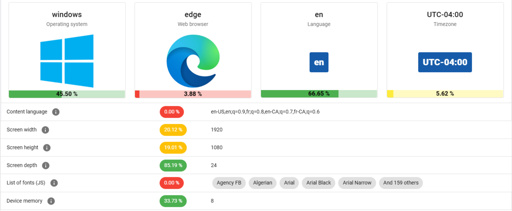Amidst the glossy marketing for VPN services, it can be tempting to believe that the moment you flick on the VPN connection you can browse the internet with full privacy. Unfortunately this is quite far from the truth, as interacting with internet services like websites leaves a significant fingerprint. In a study by [RTINGS.com] this browser fingerprinting was investigated in detail, showing just how easy it is to uniquely identify a visitor across the 83 laptops used in the study.
As summarized in the related video (also embedded below), the start of the study involved the Am I Unique? website which provides you with an overview of your browser fingerprint. With over 4.5 million fingerprints in their database as of writing, even using Edge on Windows 10 marks you as unique, which is telling.



You and a thousand other people.
Yeah, but fingerprinting is effective by cross referencing.
There are 1,000 people with the IP 1.2.3.4
There are 500 people with the IP 1.2.3.4 using Firefox
There are 25 people with the IP 1.2.3.4 using Firefox with a 1440p screen
There are 2 people with the IP 1.2.3.4 using Firefox with the dark reader extension with a 1440p screen at 75Hz
etc.
So rotating the IP can screw with that.